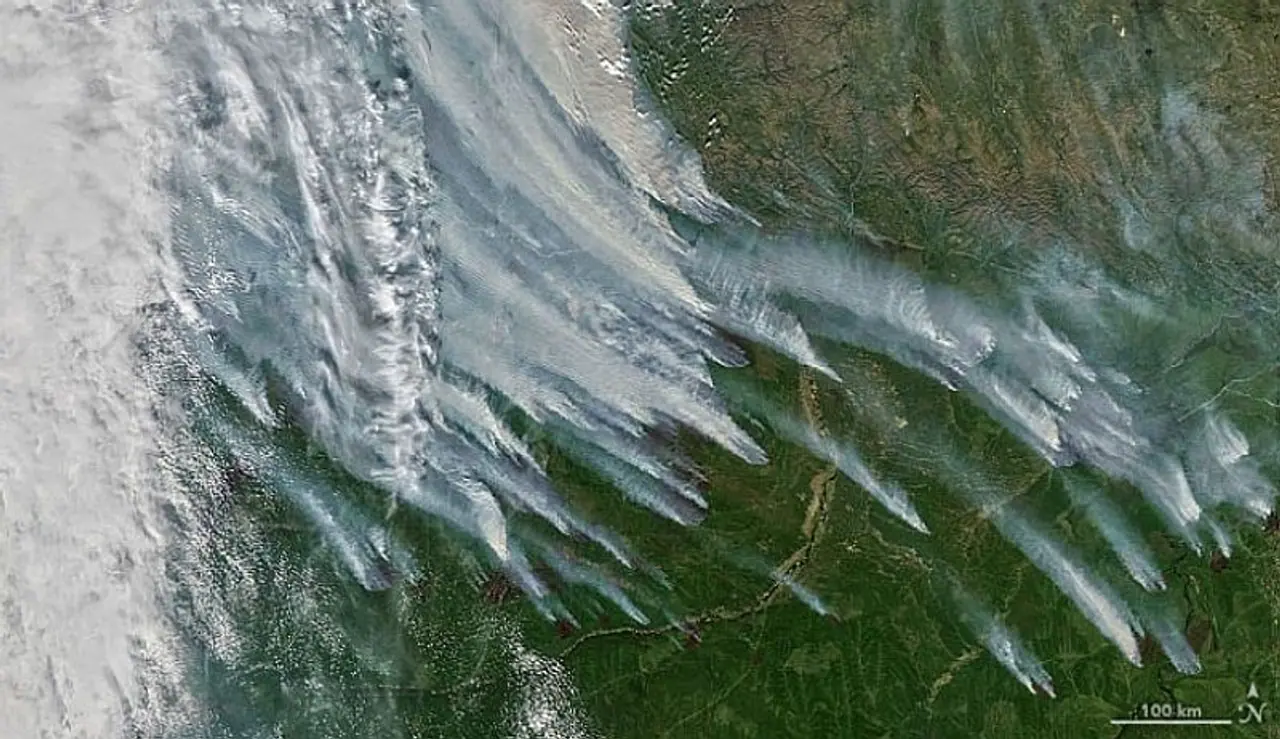Smoke from Siberian forest fire spotted 3000 km away at North Pole
Smoke from the smoldering forests of Siberia has reached the North Pole, and that's now causing massive concerns.

<p>Satellite imagery shows multiple fires burning in Siberia's Sakha Republic.</p>
Smoke from the smouldering forests of Siberia has reached the North Pole, and that's now causing massive concerns.
Satellites flying over Siberia's Sakha Republic observed smoke billowing from hundreds of forest fires in the region and travelling almost 3000 kilometres away to the North Pole.

<p>Efforts continue to douse the wildfire in the village of Kuel in Yakutia, Sakha, Russia on August 8, 2021. Photograph: Ivan Nikiforov/Anadolu Agency/Getty Images</p>
The Sakha Republic is in the cold temperate region. Parts of its forests are normally covered in snow, and, according to NASA, its northern region is one of the coldest places on the planet. However, the area has been witnessing record high temperatures.
In June, however, some parts of the region recorded temperatures as high as 47 degree Celsius.
<p>The forest fire in the taiga. Image provided by Avialesookhrana, which is a subdivision of Russia's Federal Agency for Forestry, which monitors and responds to information on forest fire risks. Photograph: Avialesookhrana/TASS/Getty Images</p>
Russian President Vladimir Putin has rushed additional reinforcements to deal with the blaze that has razed almost 8.7 million hectares (21.4 million acres) in the sparsely-populated
According to the Russian emergencies ministry, over 8,000 people were fighting the fires and over 9,500 tonnes of water had been dropped from the air.
<p>Efforts continue to douse the wildfire in the village of Kuel in Yakutia, Sakha, Russia on August 8, 2021. Photograph: Ivan Nikiforov/Anadolu Agency/Getty Images</p>
The forest fires have brought back into focus the United Nations report that warned that climate change is nearing catastrophic levels. The report also noted that global sea level rise is accelerating, increasing by about 8 inches on average between 1901 and 2018.
Terming the findings as a reality check, the intergovernmental panel on climate change’s latest findings underscored that that some of the changes already set in motion could be 'irreversible' for centuries to come.
Check the Breaking News Today and Latest News from across India and around the world. Stay updated with the latest World News and global developments from politics to economy and current affairs. Get in-depth coverage of China News, Europe News, Pakistan News, and South Asia News, along with top headlines from the UK and US. Follow expert analysis, international trends, and breaking updates from around the globe. Download the Asianet News Official App from the Android Play Store and iPhone App Store for accurate and timely news updates anytime, anywhere.